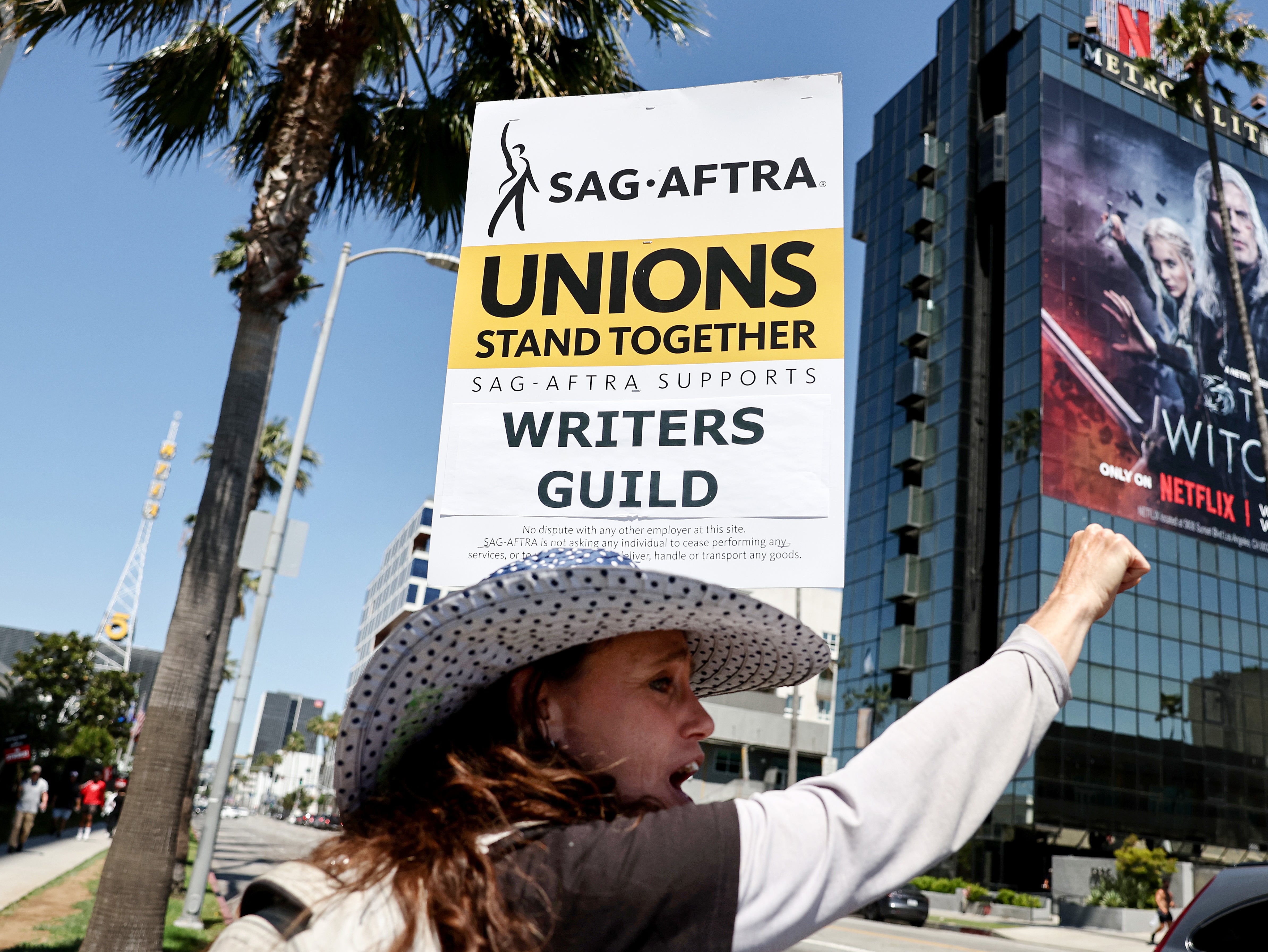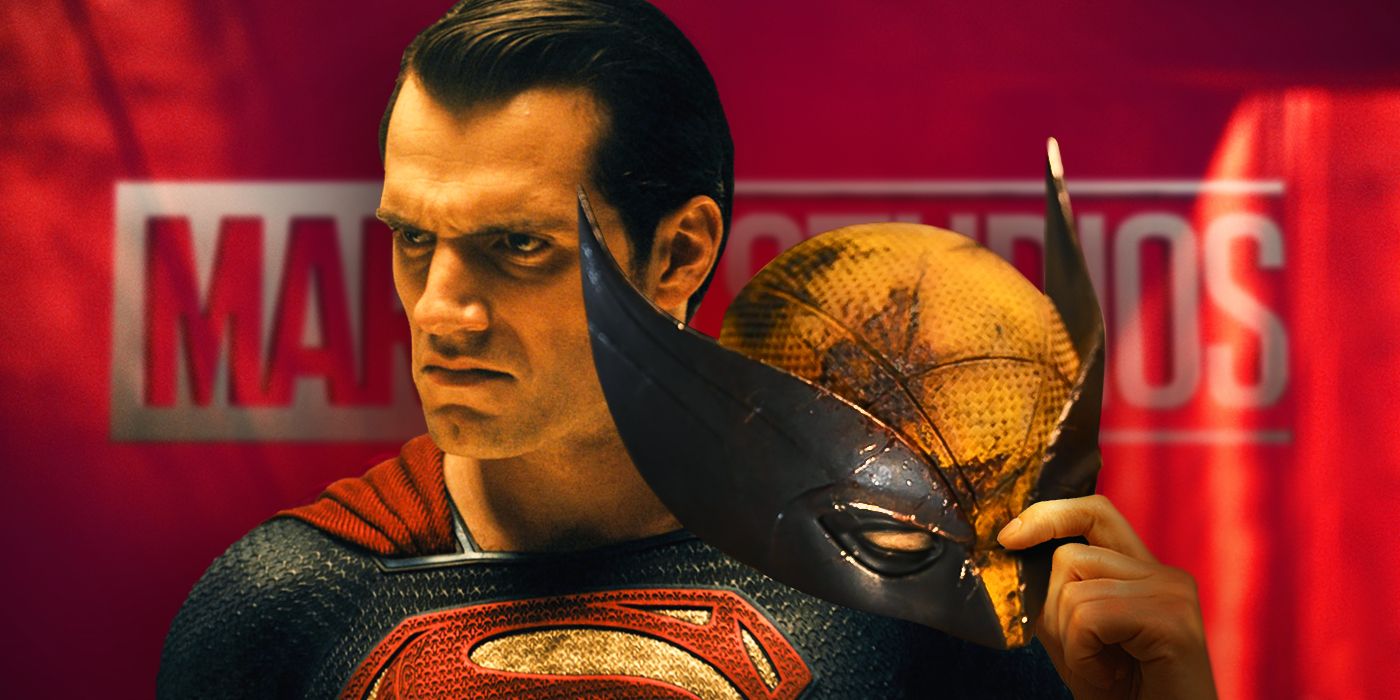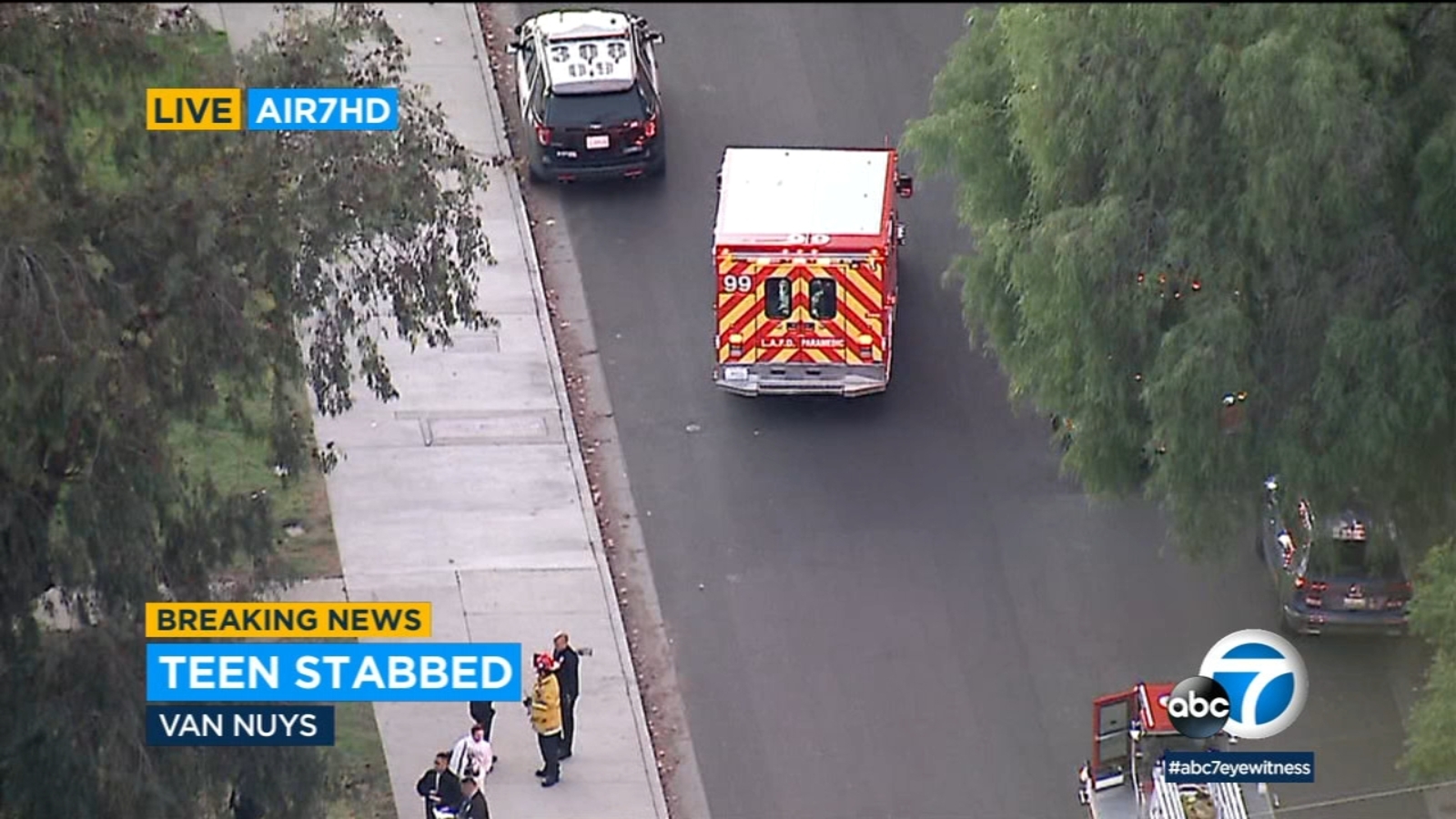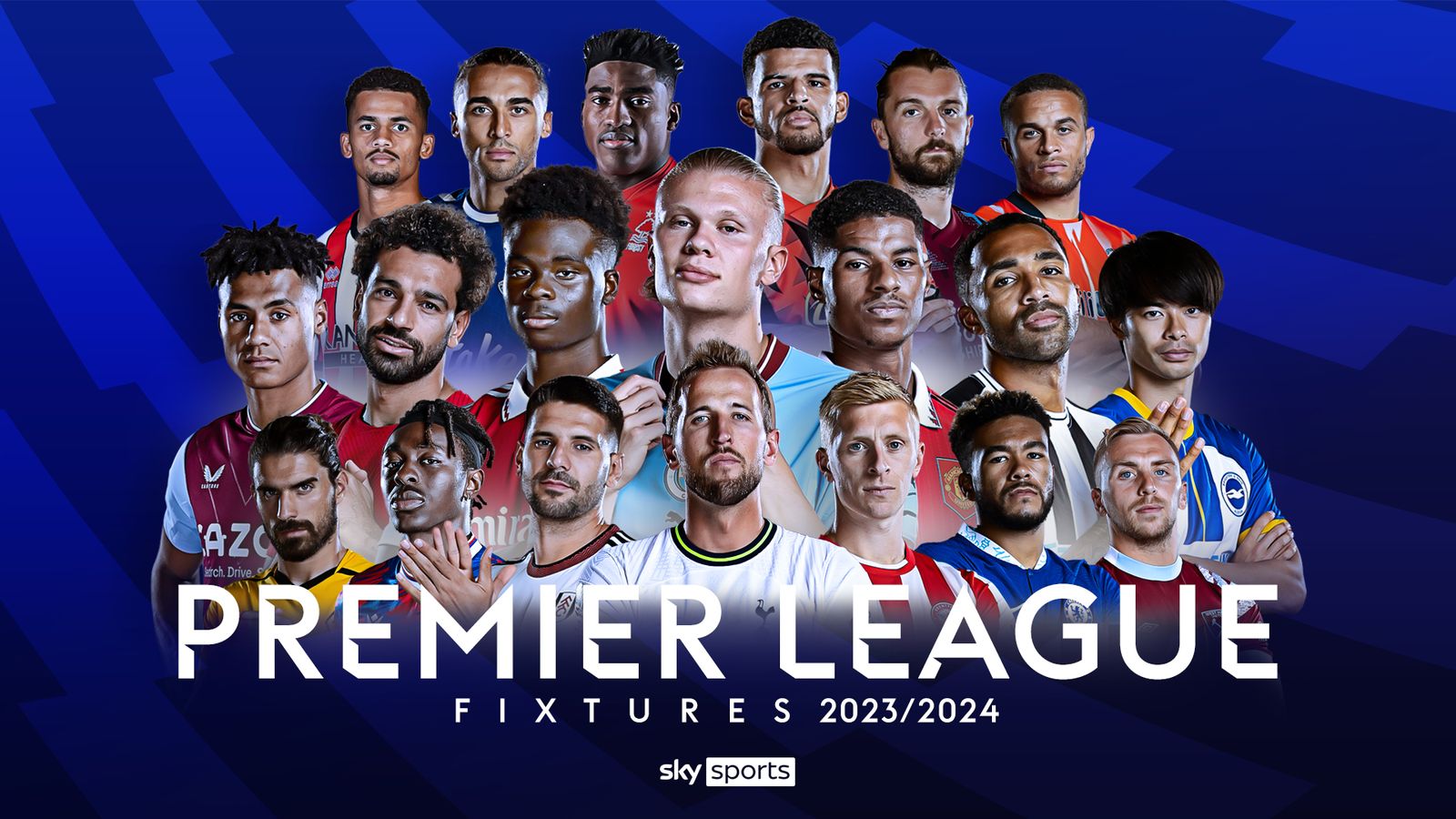The Hollywood Strike: A Deeper Look At The Actors' And Writers' Demands

Table of Contents
The Hollywood strike, encompassing both actors and writers, represents the largest industry disruption in decades. This unprecedented work stoppage underscores deep-seated concerns about fair compensation, the rise of artificial intelligence (AI), and the evolving landscape of streaming residuals. This article delves into the complex demands fueling this walkout, examining the key issues impacting the livelihoods and future of creative professionals in the entertainment industry. We'll dissect the fight for equitable pay, the challenges posed by AI, and the need for a more sustainable model for streaming revenue.
Fair Compensation and Residuals in the Streaming Era
The shift from traditional television to streaming has fundamentally altered the economic landscape for actors and writers. This transition has led to a significant decline in compensation, sparking a crucial demand for fair compensation during this Hollywood strike.
The Decline of Traditional Residuals
The traditional television model provided actors and writers with residuals – payments each time their work aired. This system, while not perfect, offered a degree of financial security and ensured ongoing income from successful projects. Streaming, however, has dramatically altered this dynamic.
- Reduced Payments: Streaming platforms often pay a flat fee for a project, eliminating or drastically reducing residuals. This means actors and writers receive a one-time payment, regardless of a show's popularity or longevity.
- Impact on Mid-Level and Background Actors/Writers: The impact is acutely felt by mid-level and background actors and writers, who previously relied on residuals to supplement their income. These individuals are often disproportionately affected by the shift to streaming.
- Income Disparity: Studies reveal a significant income disparity between streaming and traditional media. While streaming platforms generate billions in revenue, the share going to actors and writers is demonstrably lower, exacerbating income inequality.
The Fight for Fair Streaming Royalties
The core demand during the Hollywood strike centers around fair streaming royalties. Actors and writers are pushing for greater transparency and a more equitable distribution of streaming revenue, mirroring the fair compensation desired by many professionals.
- Proposed Solutions: Union negotiations propose innovative solutions such as revenue-sharing models based on streaming viewership data and a minimum payment guarantee for successful projects, regardless of platform.
- Role of Streaming Giants: Netflix, Disney+, Amazon Prime Video, and other streaming giants play a significant role in these negotiations, their business models intrinsically linked to the issue of fair compensation.
- Long-Term Effects: The outcome of these negotiations will have a profound and lasting impact on the entire entertainment industry. Success could lead to fairer compensation models, but failure could further marginalize many professionals in the creative sector.
The Threat of Artificial Intelligence (AI) and its Impact
The rapid advancement of AI technology presents a significant threat to actors and writers, fueling a core component of the Hollywood strike. The potential for AI to replace human talent raises critical questions about job security, creative control, and the very nature of artistic expression.
AI's Role in Scriptwriting and Performance
AI is already being used in various stages of filmmaking, from script generation to digital effects. This raises significant concerns, driving a demand for protection against AI misuse.
- AI-Generated Scripts: AI algorithms can generate scripts, potentially reducing the demand for human writers. Concerns exist about the originality and artistic merit of AI-generated content.
- Deepfakes and AI-Generated Performances: Deepfake technology allows for the creation of realistic but fabricated performances using AI, raising ethical and legal concerns about the unauthorized use of actors' likenesses.
- Ethical Implications: The use of AI raises complex ethical issues surrounding creativity, authenticity, and the devaluation of human talent.
Protecting Intellectual Property Rights in the Age of AI
The unauthorized use of actors' likenesses and writers' work in AI-generated content is a major concern. The demands for clear safeguards aim to protect creative professionals' intellectual property.
- Copyright Infringement: AI models trained on copyrighted material raise complex questions about copyright infringement and the ownership of AI-generated content.
- Proposed Solutions: The unions are pushing for strong regulations and safeguards to prevent the unauthorized use of actors' and writers' work, ensuring appropriate compensation for the use of their intellectual property.
Working Conditions and Health Concerns
The demands in the Hollywood strike extend beyond financial compensation, addressing pervasive issues of working conditions and access to adequate healthcare.
Long Hours and Intense Workloads
Actors and writers often face grueling schedules, tight deadlines, and intense pressure to deliver high-quality work within unrealistic constraints. This leads to significant burnout.
- Problematic Work Environments: Many professionals describe long hours, insufficient rest, and constant pressure as commonplace within the industry.
- Demands for Improvement: The strike calls for improved working conditions, reasonable schedules, and a greater emphasis on work-life balance.
- Actor and Writer Burnout: Data suggests high rates of burnout among actors and writers, directly linked to demanding workloads and precarious employment conditions.
Health Insurance and Benefits
Access to adequate health insurance and benefits remains a critical concern for many actors and writers, especially those working on smaller projects or in the freelance market. Fair compensation must also include healthcare coverage and other benefits.
- Demands for Improved Benefits: The strike pushes for improved access to health insurance, retirement plans, and other benefits to ensure a safety net for creative professionals.
- Impact on Well-being: Enhanced access to health insurance and other benefits will have a significant impact on the overall health and well-being of entertainment industry workers.
Conclusion
The Hollywood strike spotlights critical issues impacting the entertainment industry’s future. The key demands – fair compensation in the streaming era, protection against AI threats, and improved working conditions – underscore the need for a more equitable and sustainable model for creative professionals. The fight for fair treatment goes beyond individual financial gain; it's about ensuring the long-term health and viability of the entertainment industry itself. Stay informed about the ongoing negotiations and support the actors and writers in their fight for fair treatment and a sustainable future by visiting [link to relevant resource, e.g., SAG-AFTRA website, WGA website]. Understanding the nuances of The Hollywood Strike is crucial for appreciating the broader impact on the future of film and television.

Featured Posts
-
 Onex Investment In West Jet Complete Return Achieved Through 25 Stake Sale
May 12, 2025
Onex Investment In West Jet Complete Return Achieved Through 25 Stake Sale
May 12, 2025 -
 Manon Fiorot A Deep Dive Into The Career Of A Top Ufc Contender
May 12, 2025
Manon Fiorot A Deep Dive Into The Career Of A Top Ufc Contender
May 12, 2025 -
 Zurich Classic Mc Ilroy Lowry Duo Commits To Title Defense
May 12, 2025
Zurich Classic Mc Ilroy Lowry Duo Commits To Title Defense
May 12, 2025 -
 Marvels Cancellation Of Henry Cavill Show A Potential Benefit
May 12, 2025
Marvels Cancellation Of Henry Cavill Show A Potential Benefit
May 12, 2025 -
 Anthony Mackies Sneaker Role A Sneak Peek At The New Kids Movie
May 12, 2025
Anthony Mackies Sneaker Role A Sneak Peek At The New Kids Movie
May 12, 2025
Latest Posts
-
 School Stabbing Victims Funeral A Community Grieves
May 13, 2025
School Stabbing Victims Funeral A Community Grieves
May 13, 2025 -
 Funeral Services For Teenager Killed In School Stabbing
May 13, 2025
Funeral Services For Teenager Killed In School Stabbing
May 13, 2025 -
 Community Mourns 15 Year Old Stabbed At School
May 13, 2025
Community Mourns 15 Year Old Stabbed At School
May 13, 2025 -
 Newcastle United Supporters Championship Play Off Picks
May 13, 2025
Newcastle United Supporters Championship Play Off Picks
May 13, 2025 -
 Pl Retro Accessing Sky Sports Premier League Classics In Hd
May 13, 2025
Pl Retro Accessing Sky Sports Premier League Classics In Hd
May 13, 2025
